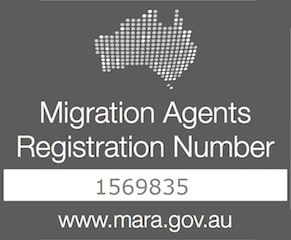Recently, the Australian government announced a significant immigration policy adjustment, raising the Temporary Skilled Migration Income Threshold (TSMIT) from AUD 53,900 to AUD 70,000, effective from 1st July 2023. This change marks the first adjustment to the TSMIT in the past 10 years.
TSMIT is the minimum income requirement for skilled workers applying for a Temporary Skill Shortage (TSS) visa. The TSS visa program is a temporary visa for skilled workers from overseas, aimed at attracting them to live and work in Australia and provide support for the local economy and technological development.
This article will provide a detailed overview of the background, purpose, and impact of this policy adjustment on employers and skilled workers, offering a comprehensive understanding of the changes.
Why raise the income threshold?
The Australian government believes that raising the TSMIT ensures that skilled workers sponsored by Australian employers have the financial ability to live and work in Australia, allowing them to better adapt and integrate into local communities. Additionally, the government states that this adjustment helps ensure that skilled workers sponsored by Australian employers do not replace the local workforce, thus protecting the interests and employment opportunities of Australian workers.
This policy adjustment reflects the Australian government’s balanced consideration of economic development and human resources. By introducing outstanding international skilled workers, Australia can fill the skill gaps in its domestic market, promoting technological innovation and industry transformation. At the same time, protecting the interests of the local workforce helps maintain social harmony and stability, providing a solid foundation for Australia’s continued development.
What does this mean for employers?
Employers looking to sponsor overseas skilled workers will need to offer a minimum annual salary of AUD 70,000 plus superannuation, ensuring that they can enjoy competitive remuneration and a stable life in Australia. Employers unable to provide at least AUD 70,000 in wages will not be able to sponsor overseas skilled workers.
This change will encourage employers to focus more on recruiting outstanding foreign skilled talents and ensuring that their remuneration is competitive with local skilled workers. It also helps raise the overall industry wage levels, prompting Australian businesses to focus more on talent development and skill enhancement. Simultaneously, this policy adjustment helps maintain stability in the domestic labour market, preventing social issues and potential risks arising from low wage levels.
What does this mean for applicants?
Eligible TSS visa applicants will receive higher income while living and working in Australia, improving their quality of life and financial security. This change will make Australia a more attractive destination for overseas skilled workers, attracting more international professionals to invest, innovate, and exchange in Australia. In turn, Australia can fully utilise these skilled workers’ expertise and experience to promote the development and competitiveness of various industries, further enhancing Australia’s position in the global market.
Permanent visa pathways for 482 visa holders, including short-term streams, are set to become effective at the end of 2023
The Australian government recently announced that it would introduce new permanent visa pathways for Temporary Skill Shortage (TSS) visa holders (including short-term stream holders), allowing them to better retain international talent and contribute to Australia’s long-term development. It is expected that the new pathways will take effect at the end of 2023, enabling TSS visa holders to apply for permanent residency without first obtaining a skilled independent visa.
This policy adjustment is expected to further promote Australia’s economic development and diversification while providing a more straightforward and attractive permanent residency pathway for highly skilled foreign talents. This change will help Australia attract and retain more international professionals to meet local economic and industrial development needs, further elevating Australia’s position in global competition.




